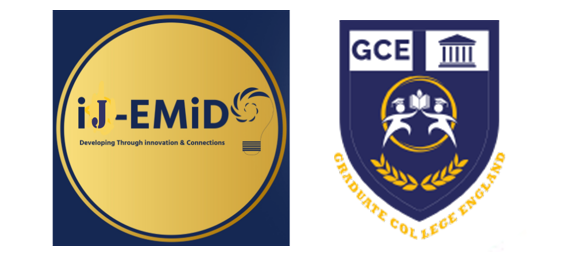Implementation of Quality Initiatives for Organisational Sustainability: Learning From Best Practices of Lucas TVS
Archana Shankar & Shikha Gera , Eziashi, Julius Ubaka
Abstract
With the advent of globalisation and increased competitiveness, organisations are finding innovative avenues to make themselves sustainable in the long run. Total Quality Management is one such measure that focuses on increasing quality in various processes, products and services by involving everyone from the top level CEO to the shop floor workers. The quality revolution which started in the west with the advent of scientific management was spread to the east in Japan through American Quality specialist Deming and several others. Later these scientists introduced the quality practices in India in association with the CII. Quality practices were predominantly being implemented in the manufacturing industries. Nearly three decades hence, Quality management in India has strengthened and several companies have won various quality awards such Deming Prize, MBNQA and so on and so forth. Recently many service industries have also started focusing on quality practices in improving their processes and systems by imbibing the best measures from the manufacturing industries. The present research paper focuses on a case study of Deming Grand Prize winning organisation, Lucas-TVS, Chennai. Further, the paper focuses on understanding how quality practices can lead to increased organisational sustainability in the era of Industry 5.0.
otal Quality Management, Manufacturing Industries, Organisational Sustainability
Evolving Demands and Shifting Preferences of Indian SMEs for Consulting Services
Vishwanath Kokkonda
Abstract
Small and medium enterprises (SMEs) are the mainstay of the Indian economy, yet the subject of SMEs and their consulting services is a largely unexplored area of research. The survey found a "sharp shifting focus towards strategic consulting services to address client-specific requirements, a move away from the wider focus on basic accounting and tax compliance. Several key challenges facing SMEs within consulting landscape have been identified. Flawed pricing models due to a lack in transparency, consultant competence ambiguity, and the delivery of services remain an area in which SMEs are not confident.
mall and medium enterprises (SMEs),consulting services ,key challenges facing SMEs ,
The Role Of Customer Knowledge in Engaging Customers in Sustainable In Digital Financial Decisions
Urszula Wysocka, Ofori, Emamanuel
Abstract
The paper discusses the importance of financial education for customers regarding developing digital banking services. The purpose of the study is to identify the process of making the financial decisions of the customers, the biggest challenges during these processes, and the need of the financial education needed to make these decisions. The author carries out an analysis of the financial education projects/initiatives implemented by banks worldwide. The study emphasizes the vital role of banks in promoting sustainable social and economic development. It highlights the need for financial education to facilitate effective collaboration between banks and customers. The obtained results are useful for decision-makers in banking institutions to develop educational initiatives and help customers make better financial decisions.
: banking, digital banking, education, financial decisions.
Examining Emotional Intelligence Influence on Higher Education Students’ Motivation, Engagement and Collaborative Working
Mohammad Masud, and Syed Hussain
Abstract
The aim of this research is to review how emotional intelligence influenced engagement, motivation and collaborative working of higher education students. it has emerged that EI directly influenced facets of behavioural engagement to an extent that students having a high level of EI had increased scope to project augmented engagement in terms of behaviour (undertaking increased efforts to educational activities, augmented level of persistence etc.) and reduction in behavioural disengagement (behaviour of withdrawal, unpreparedness etc.).
emotional intelligence (EI) , Student engagement , higher education ,Student Motivation,, Emploabilty
Honeycomb Framework Aspects Influencing Consumer Purchasing Intention: A Study of UK Fashion Industry
Fioresi, Monica Redolfi, Carolina
Abstract
This research aims to investigate what factors of the honeycomb framework in social media marketing influencing consumer purchase intention in the UK fashion industry. This study examines the seven blocks of the honeycomb framework developed by Kierzmann et al. (2011), that is composed of identity, conversation, sharing, presence, relationship, reputation, and community. The research collected 105 quantitative people data through an online survey, proceeding positivism research philosophy and deductive research approach.The statistical analysis demonstrated six of seven hypotheses were accepted based on what factors of the honeycomb framework in social media marketing influence consumer purchasing intention in the UK fashion industry. This research contributes to knowledge and creates recommendations to managers and marketers about social media marketing and consumer purchase intention and provides useful information for business to enhance their marketing strategy through social media channels.
social media marketing, consumer purchasing intention, UK fashion industry
Abstract
Abstract

